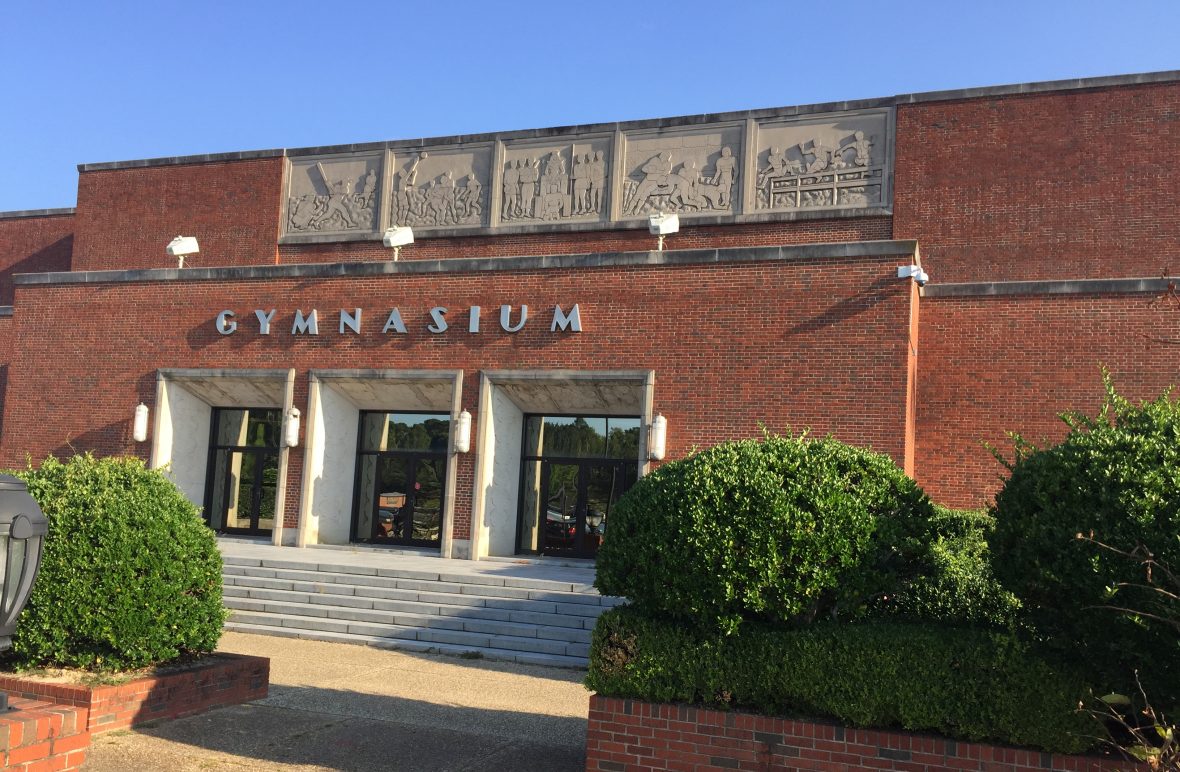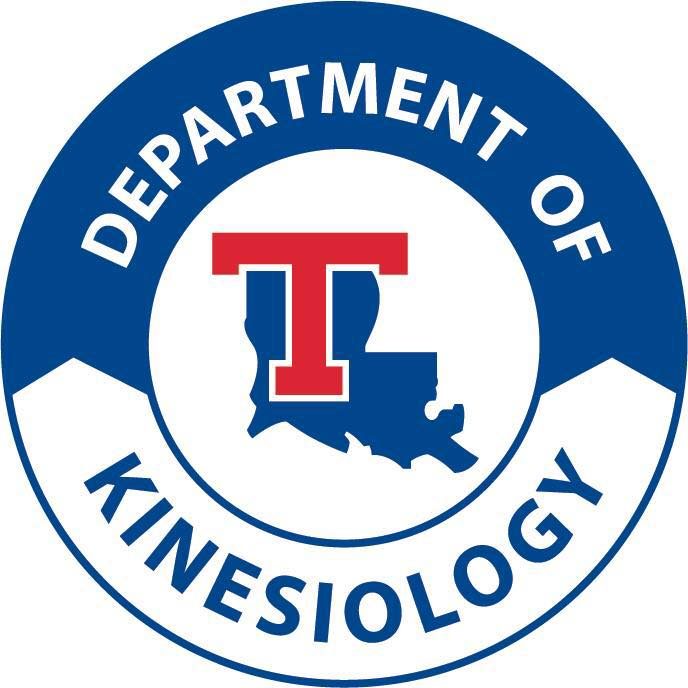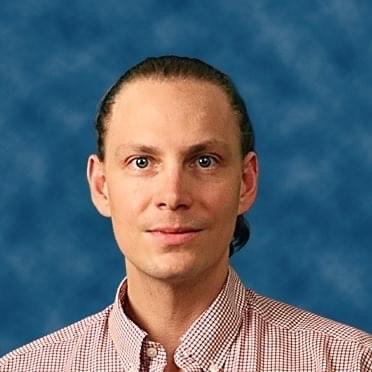
Joshua R. Sparks, Ph.D., EP-C
M.S. from the Department of Kinesiology in 2012
What can I say? I never imagined that this is the point my life would lead up to. From the outside looking in, you would get the sense that this is what I always wanted to be. A contract Senior Research Physiologist working within industry at Leidos, one of the largest biotechnology and national security companies in the world. It’s a dream come true, but not a dream I knew I had. A recent special called The Dreamer by Dave Chappelle, yes, the comedian, reminded me of a very powerful quote, If one advances confidently in the direction of his dreams, and endeavors to live the life which he has imagined, he will meet with a success unexpected in common hours. This is the story of how my dream, up to this point, has unfolded. Don’t fret, I am still dreaming.
For starters, I am not supposed to be in the position I am today, at least not given my background and upbringing. I am from a small farm community outside of Shreveport, LA. My father was a 3rd shift janitor at General Motors and my mom was an elementary school teacher. They divorced whenever I was young and, with my mom and two sisters, moved in with our grandparents. This instilled the concept of hard work to achieve your goals, but also the untold skill of resilience and perseverance in the presence of obstacles and obscurity. The drive to strive to improve myself and to earn my seat at the table was, needless to say, developed at a young age. However, this time also taught me compassion and understanding, while also guiding me to want to help others who may face similar or worse circumstances.
Throughout my childhood into adolescence and my young adulthood, I did decent in school, never excelling, but also never failing. Sitting at the upper echelon on mediocre, despite the amount of time and effort placed into academics. So, comes with the territory of having ADHD and dyslexia, but it never impeded on my ability to effectively learn. Where I always excelled, however, was when it came to athletics and, importantly, work. It would have been amazing if the two coalesced together to allow for athletics to be my primary occupation. Yet, this did not happen, or not in the traditional sense at least.
Following high school, I attended Louisiana Tech University for Mechanical Engineering. It was my dream, at the time, to work with numbers and equations, and help build structures that would stand the test of time. If I had completed that degree, I would have been a mechanical engineer for over 15 years now. Rather than complete my degree, following a few contentious months in my undergraduate career, I dropped out of school. I did what I knew best, I worked, obtaining employment as a construction worker utilizing established skills and learning new tricks and trades aligning with my previous passion of mechanical engineering. Understanding the importance of the work I was performing, but also recognizing that my dream was not being fulfilled, I went back to school, transferring to the University of Louisiana at Monroe. This is where I found my passion for kinesiology and exercise science. A new dream began to unfold.
At the University of Louisiana at Monroe I was introduced to several clinical instructors with a passion for exercise science, specifically cardiac rehabilitation, which was my indoctrination to exercise prescription in a variety of populations, particularly those with chronic disease. I was afforded the opportunity to serve as an undergraduate teaching assistant for entry-level exercise science and anatomy and physiology courses, train in the human performance laboratory to hone my skills, and assist graduate students and faculty with their ongoing research projects. I began to develop my own interests, which led me to presenting a research poster at the regional Southeast Amercian College of Sports Medicine (ACSM) Conference, earn credentialing as an ACSM certified exercise physiologist, and be honored with an undergraduate research award. This ultimately culminated in a clinical internship at a local Cardiac Rehabilitation clinic and graduation with my degree in 2010. Another dream comes true.
Following my undergraduate graduation and completion of my clinical exercise science internship, I was offered to continue my position part-time in the cardiac rehabilitation clinic, which was located in Ruston. I was at a colloquial fork in the road as I desired to continue my education rather than immediately jump into the job market. My dream, at this time, was to head a cardiac rehabilitation clinic, and the lead exercise physiologist of my internship, as well as my undergraduate instructors insisted that a graduate education was necessary. Although I had applied, and was accepted to multiple graduate programs, including Auburn, Tennessee, and Texas, as examples, I returned to Louisiana Tech University, to work with the faculty and staff in the Department of Kinesiology, as well as maintain my position as a part-time exercise physiologist. This career path is a bit adjacent from the common path sought from those who attend Louisian Tech University for their graduate degree, but I had unfinished business, desired my degree from Louisiana Tech University, and knew I would gain quality experience and receive a top-notch education along the way. Unexpectedly, due to downsizing, I was relieved of my duties as a part-time exercise physiologist prior to beginning my graduate education. I had to switch gears and pursue a graduate assistantship within the Department of Kinesiology to support my education, while still allowing for appreciable experience towards my goal. I instructed the immensely fun and exciting activity courses, such as aerobic running and fitness, and met many wonderful students along the way that made my educational experience that much more fulfilled. I was also able to serve as a teaching assistant for several upper-level kinesiology courses, which taught me the value of being in front of a classroom and speaking with others about their career goals and ambitions. My most lasting friendships came from this time.
As I neared completion of my graduate degree, I needed to make another decision. Would I continue to pursue a career path as a clinical exercise physiologist and, if so, how do I attain that goal? I never lived outside of the 1.5-hour stretch along the I-20 corridor in North Louisiana. However, it became clear that I would need to be willing to at least travel outside of the region to obtain a desired position. To put things into perspective, I was slated to graduate in August 2012 and had no prospects in my initial job search other than odd jobs I had already established with fitness and recreational facilities. August turned to September, September to October, and October to November, I am sure you all get the idea. Nothing other than a few phone call interviews due to regional limitations and inability to travel to most interviews without some sort of financial assistance (graduate students don’t make much money 😊). However, I persisted. A position posting came live for an Exercise Physiologist at Duke University Medical Center in their cardiology clinic. I was grossly underqualified for the position, but they had a contact name and number listed with the position posting. I engaged with the appropriate point-of-contact, discussed my background and training, as well as my short- and long-term goals, and the work I would be willing to put in if afforded the opportunity to work in such a position. This discussion resonated well with them. I was invited to complete an in-person interview in early December 2012. I didn’t dare tell them I couldn’t afford it or turn it down. We set the date and I drove up the night before to save on hotel, food, etc… performed the interview, and drove back to Louisiana right after. It was an exhausting trip, but worth it. Turned out this was a bit of a test from them. To see if I was willing to make things work for a quick turnaround interview process. Every other candidate was internal, I was the sole external candidate interviewed. Never let anyone tell you that cold calling or being persistent for job postings will lead to nothing in the digital age. I still engage more with colleagues in real-time via phone call and video chat than I do through email. I digress, although I had impressed and passed their “test”, I was still underqualified for the position. However, the hiring manager made me a proposition. Prove to them that I could perform the essential duties of the position, be prepared to move to North Carolina and begin the position in January (<1 month from interview), and, if certain conditions were met, they would promote me into the position once I was proficient. I started as a Cardiology Technician, within 3 months was promoted to an Exercise Physiologist, and within the first year as Lead Exercise Physiologist. The dream was finally becoming a reality!
Durham, NC and Duke University Medical Center was a dream in and of itself. Living in the foothills of the Appalachian Mountains, <2 hours from world class hiking and beaches, all while working with world-renowned cardiology experts, and gaining new experience in pulmonary and environmental physiology. The hands-on experiences within Duke University Medical Center were second to none and allowed for credentialing and licensing that would allow for me to eventually lead my own cardiac rehabilitation. After I had been at Duke University Medical Center for ~8-9 months, I was approached about a part-time position as an exercise physiologist at the Duke Center for Living, leading their weekend cardiac rehabilitation exercise classes. I pinched myself, this couldn’t be real, could it? I interviewed for the position, and it went extremely well. During my interview process, I was introduced to a Principal Investigator centrally located at the Duke Molecular Physiology Institute, but peripherally located at the Duke Center for Living. He expressed he was in need of an exercise physiologist on the main and satellite campuses I was already affiliated with. The position was still part-time, meaning I could continue to perform my current position unimpeded, located at clinics I was already attending, the pay was more competitive, I didn’t have to work weekends, and the growth trajectory was much higher. After attending a few lab meetings about the ongoing research projects, I would be affiliated it, it became a no brainer that this position offered so much more. Little did I know it would once again, alter my dream and career path.
Over the next 3 months, I found myself enjoying the research side of exercise physiology more so than the clinical side. Not to say that I was losing passion for the clinic, but the research side allowed for more creativity, further questions to be asked, the implications of what I was performing in the clinic on a larger scale, the list could go on and on. In speaking with a few of the research staff, specifically the PhD-level research staff, they found my questions compelling and potentially worthy of academically answering. I was informed that if I wanted to perform my own independent research projects to answer these questions, I would need to seek additional training and education. Essentially, I needed to leave Duke University Medical Center, something I did not imagine I would do, to chase my new dream, to become an independent research scientist focused on the physiological benefits of exercise on the cardiovascular system.
This may surprise some of you, but Duke University does not offer a graduate degree in exercise science, at least not in 2013/2014. Although NC State University (Raleigh) offered a MS degree (one I already possessed) and UNC-Chapel Hill had an outstanding PhD program, I wanted to specifically work within cardiovascular exercise physiology to maximize my PhD. I began to hunt and search for mentors who would help oversee and guide my training, that would provide me the opportunity to immediately leverage my existing knowledge, skills, and abilities, while also being located at a world class institute known for its academics. I literally spent countless hours and days researching university after university. I was already late to the application party, so I needed to act quick. Geographic location was not a limitation. I finally decided on the three I would principally apply to, UNC-Greensboro, Baylor University, and the University of South Carolina. Each met my desired qualifications, and I was happy they were regionally familiar. I, once again, reached out to appropriate point-of-contacts, cold called professors I was interested in working with, told them I didn’t want to wait to begin my academic journey any later than August 2014, if possible, and rattled off why I was an investment and not a gamble. This approach worked again; I had three scheduled interviews within 2 weeks of each other with professors I desired to work with. If I am being completely honest, Baylor University was my first choice, and I was offered acceptance into their PhD program. This decision was nearly a foregone conclusion as I already knew 1 student in the PhD program who would only be a year ahead of me. If Baylor would have gone third in my interview process, I may have graduated a Bear. However, something unexpected happened.
When I was scheduling my interview for the University of South Carolina, the professor I wanted to work with confessed that he did not perform in-lab research any longer and was, more or less, a guiding light for students who want to gain experience in teaching from a researcher’s perspective. The honesty was refreshing, but I nearly cancelled my interview. I enjoyed teaching, yet I wasn’t pursuing a PhD to primarily teach. However, he told me there was a newly hired professor, someone he hand-picked to be offered a position in the department, and someone he felt would equally benefit from me as I would from her. He asked for a day to speak with her and would get back to me. Rather than hearing from him, I received a phone call from my future mentor. She had a funded exercise trial and needed someone with training and expertise in clinical exercise science. Check mark 1. She had plans for other research studies that I could lead and be a part of that would advance my education past exercise science. Check mark 2. She promised she would help fulfill my goals to the best of her ability, and, if she could not, guaranteed she would ensure availability to someone else who could provide that training. Check mark 3. I was also told that I would receive extensive training in teaching working with the original professor I hoped to perform research with. In Louisiana, we call that lagniappe. Rather than accept the position at Baylor University, or UNC-Greensboro, I was offered and accepted the PhD position at the University of South Carolina. Now garnet and black runs through my veins and I will forever be a Gamecock, in addition to a Warhawk and a Bulldog.
A PhD came across as simple when the idea was originally proposed to me at Duke University Medical Center. Afterall, I already had 2 degrees in exercise science, experience as a clinical exercise physiologist, and came with ideas that required addressing, at least in my own mind. Lessons on this, some you may know (if you have read this far): PhDs are hard, and the first 2 years are traditionally spent integrating yourself into the lab and working on research projects, instructing undergraduate and graduate courses, and taking additional coursework to build your cognate, or intellectual focus, you wish your PhD to progress in to. As my mentor was a relatively new hire, I had to split my research time between her and other Principal Investigator projects to gain the desired research experience. To pay for my PhD, I had to teach courses with over 250 undergraduate students (the University of South Carolina has over 35000 students). To define my cognate, which I established as Applied Physiology and Human Metabolism, I enrolled in medical courses, as well as public health and epidemiology/biostatistics courses, to make the lab work being performed translatable from bedside to population. This was a heavy lift for me, and it became apparent why a stark percentage of individuals who begin a PhD never finish. The ability to earn a PhD is only moderately based on intelligence, it’s predominantly based on resilience and perseverance. To complete my PhD, it took me almost 6 years. I enrolled and began in August 2014, and I defended my dissertation in April 2020 and graduated in May 2020. However, during my 6 years, I obtained independent funding and served as Principal Investigator on 2 multi-year research projects, worked on 8 multi-year research projects as a research assistant, taught 1000s of undergraduate and graduate students, built external collaborations I still foster today, and, importantly, established a long-standing relationship with my mentor that is unbreakable. She invested in me, and I invested back. I have watched her family grow from day 1 and she has been there for me as mine has grown as well.
I won’t glance over 2020, as much as I would like, since we all experienced 2020, but there are lessons to be learned. As you all know, 2020 was the beginning of the era of the COVID-19 pandemic. I was among the fortunate that had already scheduled their dissertation defense and was able to continue with a planned graduation in May 2020. Yet, I was never equipped to work from home. This may come as a shock, but I didn’t have internet at home, or a computer meant to perform anything but give basic presentations on. I was in office from sunrise to sunset Monday-Friday and for half a day on Saturday. The rest of the day and weekends I spent outside, with my dog, my friends, eventually my now wife, and when I wasn’t at work, I shut down. Like a literal light switch I turned off when I left the lab, I too turned off. COVID-19 changed this. I won’t regale you with how this changed and how I spent most of my early days during the COVID-19 pandemic, but I did successfully complete my degree in May 2020. Many others pushed theirs back and for good reason. Most places were understandably under hiring freezes. I had a PhD and couldn’t get a job. Another lesson is that most universities or institutions do not hire their PhD graduates for tenure-track positions, due to the ideology that your training and education came from the institute. Meaning, I couldn’t stay at the University of South Carolina. Fortunately, I had established relationships with potential postdoctoral research fellowship landing spots, such as the University of Kansas Medical Center and Pennington Biomedical Research Center. Unexcitingly, both centers were also under hiring freezes and stated they may not be able to potentially hire me until January 2021. I did what I do best, I worked to continue to progress towards a hiring goal. I contacted and communicated with everyone I possibly could, and my eventual boss was able to ensure an August 2020 start date. With that, I picked my now wife and I up, and left South Carolina to head back to Louisiana. Something I never imagined.
I’ll be quick about my time at Pennington Biomedical Research Center as it is still in my recent peripheral view. I was extremely successful at Pennington Biomedical Research Center, obtaining intramural and extramural grant funding, working on numerous trials, gaining new hands-on experience, and knowledge, skills, and abilities I didn’t know possible, as well as was able to finally get over the proverbial hump, and publish several first author publications, something that eluded me during my PhD. However, the biggest lesson that I learned is that your career is only as meaningful as the personal life it supports. Several individuals I worked with lived under the moniker of continual sacrifice leads to a bountiful payoff that will reflect mightily on your career. The day-in day-out personal life sacrifice I saw was no longer a desire of mine. My wife was pregnant when I had this epiphany. I saw people in office on weekends, like I was, responding to emails at all hours of the day and night, like I was, and missing out on life events, like I was not prepared to do. When I brought this up to the people I worked with, they continued to state that this is what it takes to be successful in academia. That didn’t hold true for me, because I observed that, in my time at the University of South Carolina, this was not the standard expectation. I worked the way I did because it was conducive to me at the time but needed to be able to adapt. There was no adaptation at Pennington Biomedical Research Center, the reward for hard work was more hard work. You may remember, work is something I excel at, but I found my true joy did not come from the career I was building, but the life that was unfolding in front of me. It became clear that my number 1 job, that would require the most work, was taking care of my family, being a husband, and a father. Now, with baby #2 on the way, the dream of being a family man could not be clearer, and I needed to find a career path that would help make that dream a reality.
I applied to several academic positions, but unlike previous experiences, we were now regionally limited. We bought a house in Baton Rouge and our closest family is over 4 hours away. We knew if we moved, we would not only have to sell our house, but also continue to face several of the same challenges if we moved somewhere new. I had interviews with the College of Charleston, UNC-Charlotte, the UNC Nutrition Research Institue, and LSU, but the position never felt right. They either didn’t care to negotiate or had expectations that didn’t meet my goals. Several of my friends had applied to and obtained positions in industry-based careers, and I spoke with them about this type of opportunity. Several of them worked remote, giving them the flexibility to work wherever they wanted, had a flexible work arrangement, meaning they could work the hours they wished within reason, still had opportunities to travel and meet their team in-person, and, importantly, could continue to pursue the research they desired, while being able to provide for their families in ways previously unimaginable. Similar to my approach for career, PhD, and postdoctoral research fellowship positions, I did extensive research into the positions I would find fulfilling for companies I desired to work for. I won’t mention the number of applications, interviews, etc…but I found my current role as a Senior Research Physiologist at Leidos Inc. Interestingly, I do not work directly with Leidos Inc. I am a Navy contractor working on DoD funded research projects with primary function of supporting ongoing projects within the Warfighter Performance Department at the Naval Health Research Center. In doing so, I provide in-depth input for ongoing projects to integrate and validate measures of stress physiology in operationally relevant environments. A dream I didn’t know I had, but I am 2 months into the position and wouldn’t dare look back. I am assisting in driving meaningful change and inform policy on how we train current military personnel, not only for operational performance, but also for health and longevity of military personnel and their families.
This is where I currently stand in my life. If you would like to know more, I am an open book and welcome discussion. I am a work-from-home husband and father who gets to continue to perform the impactful research and career goals I initially set out on. I am not a mechanical engineer, I do not lead a cardiac rehabilitation clinic, I am not a traditional PhD-level academic. Each of these dreams led to another dream. That is the exciting part about dreams, they can change at a moment’s notice. It’s up to us to take those dreams and make them a reality. You may notice I did not use names or highlight specific individuals. This was purposeful. We all have individuals in our life who provide guidance such as that I received, and I didn’t want the shift in focus to be on those individuals, their lives or their stories, but rather pinpoint that we should appreciate all of our encounters with professors, clinicians, students, friends and family, as well as peripheral members of our lives with equality and enjoy the little moments. Excitingly, I still have relationships with many of these people today, and, sadly, some of these individuals are no longer with us. Such is life. However, I find myself fortunate for my career path and the path forward for me in my budding career. The dream, as it were, remains to be told.
Practicing spirometry and ECG/EKG placement and observation in the Human Performance Laboratory at the University of Louisiana at Monroe
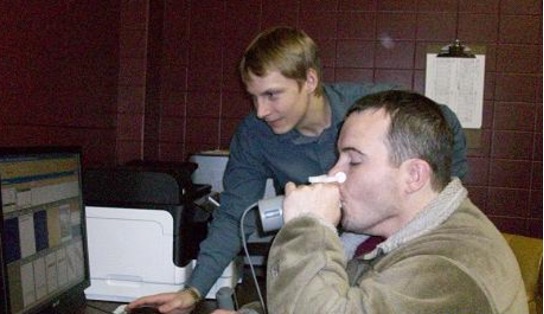
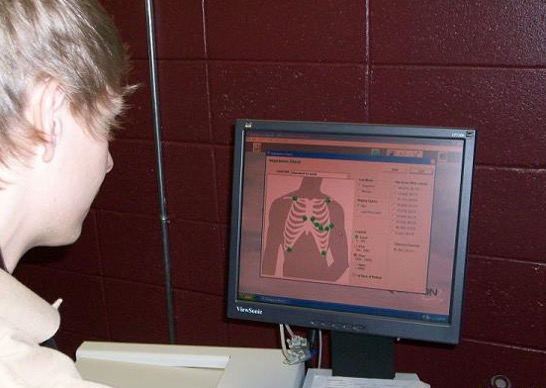
My undergraduate research project examined the relationship between heart rate response during various validated exercise tests with Wii Boxing heart rate response. Research can be fun!
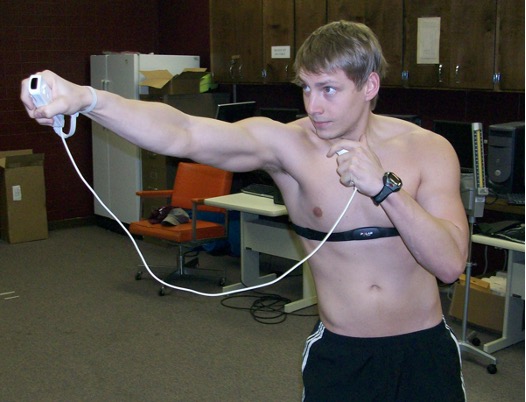
As part of KINE 534 during my MS at Louisiana Tech, we were required to analyze complex movements during a standard performance test. Completed a box jump.
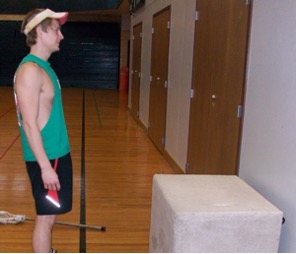
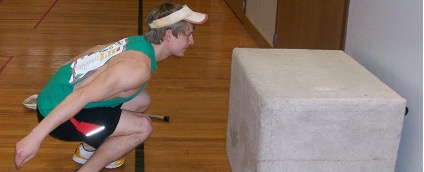
My dad and I at my Louisiana Tech University graduation.
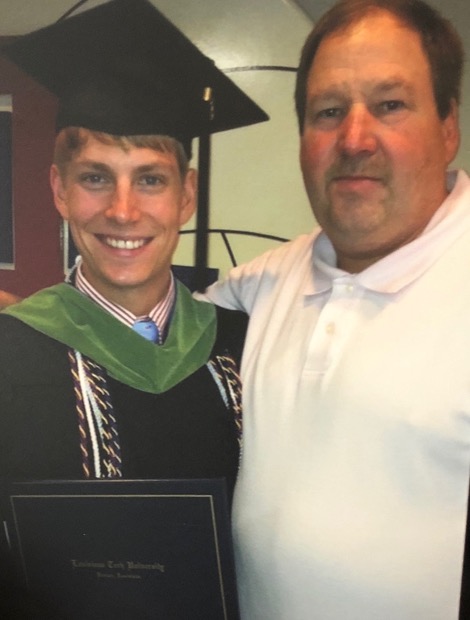
Several pictures from my PhD! I had the opportunity to travel and present at several conferences and interact with scholar both nationally and internationally.
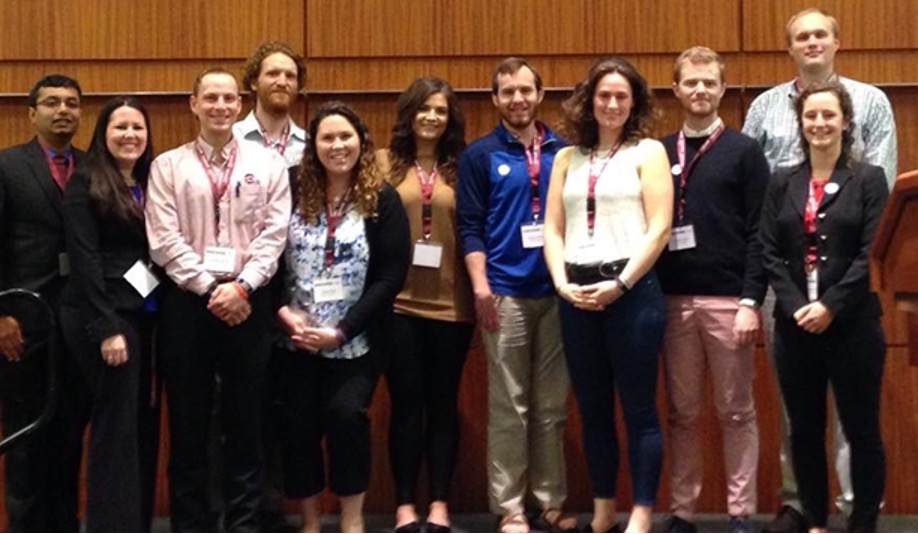
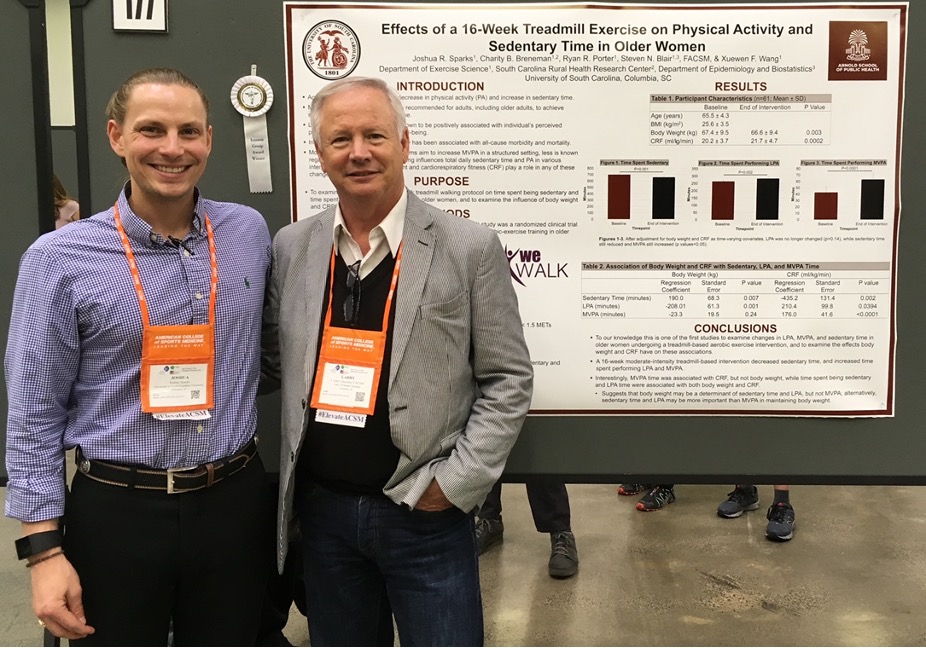
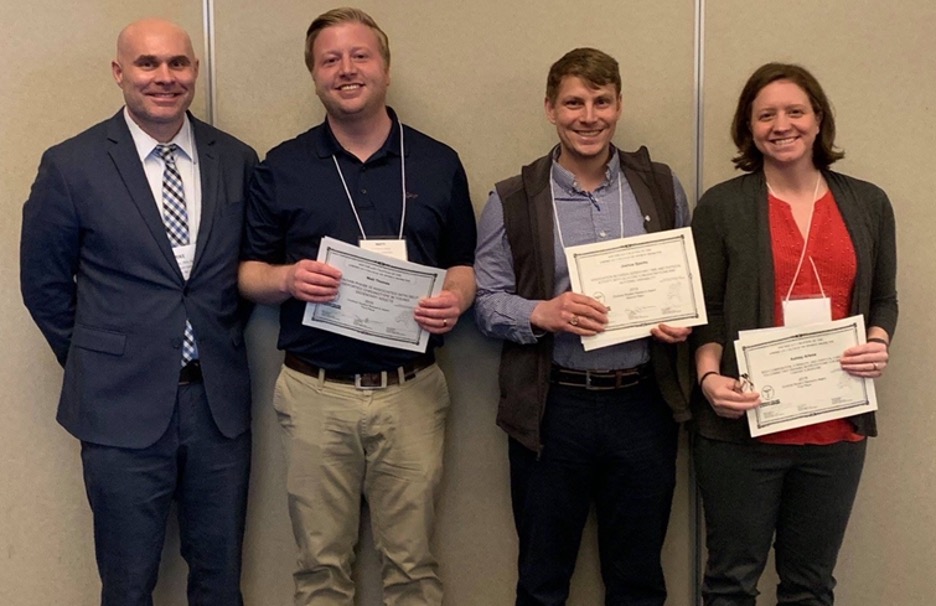
My current position as a Senior Research Physiologist with the Naval Health Research Center. Afforded the opportunity to train at the Scut Sniper Instructor School at Quantico, VA and observe over 200 USMC personnel complete their Marksmanship Performance Assessment.
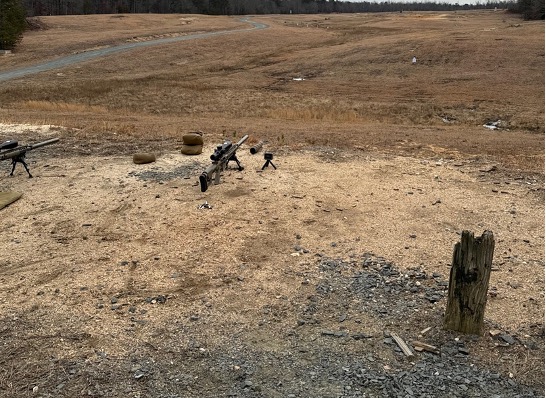
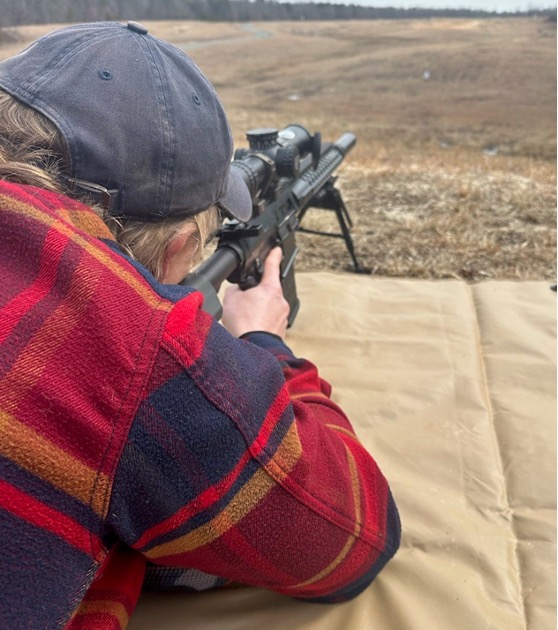
My greatest achievement and most prized occupation…husband and father!
